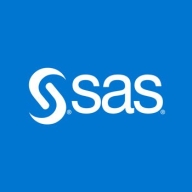

Informatica PowerExchange and SAS Data Management are competing in the data management category. Informatica PowerExchange appears to have the upper hand due to its stability and real-time capabilities.
Features: Informatica PowerExchange offers robust data transformation capabilities, efficient real-time data loading, and seamless integration with big data tools. Its change data capture feature is invaluable for updating incremental data quickly. SAS Data Management excels in data connectivity, provides powerful scripting, and handles data from diverse environments efficiently. It is also noted for its comprehensive data reporting capabilities.
Room for Improvement: Informatica PowerExchange could improve ease of use, support for diverse data types, and cloud integration, along with reducing its pricing model complexity. SAS Data Management could benefit from simplified connectivity, improved pricing structures, and enhanced cloud migration. Users find ease of installation and customer training support areas that could be more user-friendly for both products.
Ease of Deployment and Customer Service: Informatica PowerExchange provides deployment flexibility across on-premises, hybrid, and public cloud environments, while SAS Data Management focuses on on-premises setups. Users report mixed experiences with technical support for both, though SAS generally meets expectations faster. Informatica's support system is reliable but experiences some delays.
Pricing and ROI: Informatica PowerExchange has a moderate, scalable pricing model but requires separate licensing for connectors, which can increase costs. Users see value in its comprehensive features, citing a tangible ROI through digital transformation. SAS Data Management is expensive, though its integration capabilities justify its cost for many businesses, with ROI seen in improved decision-making quality.
It is considered cost-efficient because it leads to the re-utilization of channels and platforms, which saves time and money.
Their support aligns with what I have experienced with Informatica data quality teams, and it is quite effective.
Informatica's technical support team is very supportive and provides help whenever required.
The support was good enough, and they were able to resolve all the issues I raised in the past.
Technical errors sometimes occur, such as network breakages at the source level, which breaks connectivity.
The addition of data quality dashboards or measures would also help in profiling data to assess its health before sharing or moving it.
One area that could be improved is performance, as PowerExchange sometimes has less performance compared to native connectors when dealing with a huge volume of data.
There is significant room for improvement, especially with regard to using a hybrid approach that involves both CAS and persistent storage.
The pricing and cost depend heavily on SAP's licensing structure, especially if using SAP integration services.
Informatica PowerExchange is considered cost-efficient due to reduced number of APIs needed.
From my experience, SAS Data Management is an expensive tool.
It also reduces the number of APIs needed for new integrations by offering a unified exchange platform.
The primary advantage of Informatica PowerExchange is being able to extract data from source systems that Informatica does not natively support.
PowerExchange is one of the best software solutions to build integrations with non-Oracle or standard database services, especially for SAP and Hana products.
SAS Data Management stands out because of its data standardization, transformation, and verification capabilities.
| Product | Market Share (%) |
|---|---|
| Informatica PowerExchange | 1.1% |
| SAS Data Management | 0.9% |
| Other | 98.0% |


| Company Size | Count |
|---|---|
| Small Business | 8 |
| Midsize Enterprise | 3 |
| Large Enterprise | 12 |
| Company Size | Count |
|---|---|
| Small Business | 7 |
| Midsize Enterprise | 1 |
| Large Enterprise | 7 |
Informatica PowerExchange Connectors provides high performance, out-of-the-box connectivity without having to develop custom data access programs.
Every decision, every business move, every successful customer interaction - they all come down to high-quality, well-integrated data. If you don't have it, you don't win. SAS Data Management is an industry-leading solution built on a data quality platform that helps you improve, integrate and govern your data.
We monitor all Data Integration reviews to prevent fraudulent reviews and keep review quality high. We do not post reviews by company employees or direct competitors. We validate each review for authenticity via cross-reference with LinkedIn, and personal follow-up with the reviewer when necessary.